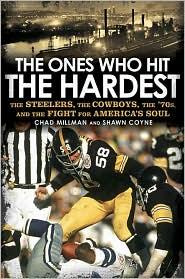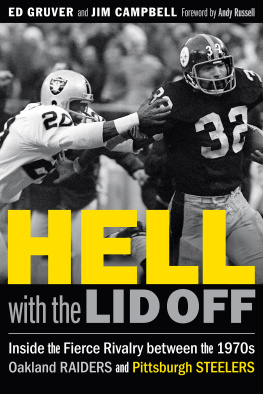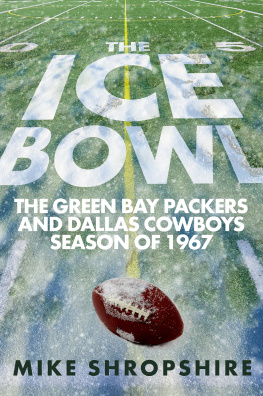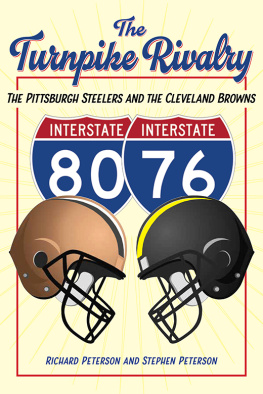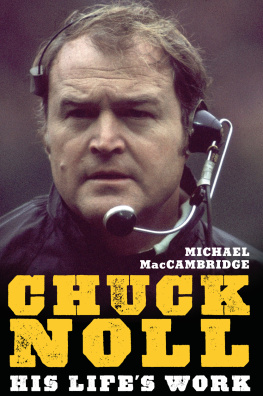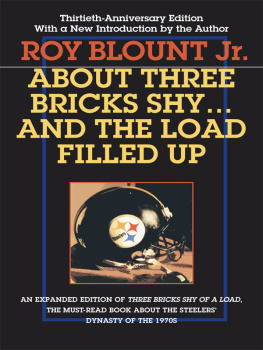Table of Contents

GOTHAM BOOKS
Published by Penguin Group (USA) Inc.
375 Hudson Street, New York, New York 10014, U.S.A.
Penguin Group (Canada), 90 Eglinton Avenue East, Suite 700, Toronto, Ontario
M4P 2Y3, Canada (a division of Pearson Penguin Canada Inc.); Penguin Books Ltd, 80 Strand,
London WC2R 0RL, England; Penguin Ireland, 25 St Stephen's Green, Dublin 2, Ireland (a
division of Penguin Books Ltd); Penguin Group (Australia), 250 Camberwell Road, Camberwell,
Victoria 3124, Australia (a division of Pearson Australia Group Pty Ltd); Penguin Books India
Pvt Ltd, 11 Community Centre, Panchsheel Park, New Delhi-110 017, India; Penguin Group
(NZ), 67 Apollo Drive, Rosedale, North Shore 0632, New Zealand (a division of Pearson New
Zealand Ltd); Penguin Books (South Africa) (Pty) Ltd, 24 Sturdee Avenue, Rosebank,
Johannesburg 2196, South Africa
Penguin Books Ltd, Registered Offices: 80 Strand, London WC2R 0RL, England
Published by Gotham Books, a member of Penguin Group (USA) Inc.
First printing, September 2010
Copyright (c) 2010 by Chad Millman and Shawn Coyne
All rights reserved
Gotham Books and the skyscraper logo are trademarks of Penguin Group (USA) Inc.
LIBRARY OF CONGRESS CATALOGING-IN-PUBLICATION DATA
HAS BEEN APPLIED FOR
eISBN : 978-1-101-45993-5
Without limiting the rights under copyright reserved above, no part of this publication may be reproduced, stored in or introduced into a retrieval system, or transmitted, in any form, or by any means (electronic, mechanical, photocopying, recording, or otherwise), without the prior written permission of both the copyright owner and the above publisher of this book.
The scanning, uploading, and distribution of this book via the Internet or via any other means without the permission of the publisher is illegal and punishable by law. Please purchase only authorized electronic editions, and do not participate in or encourage electronic piracy of copyrighted materials. Your support of the author's rights is appreciated.
While the author has made every effort to provide accurate telephone numbers and Internet addresses at the time of publication, neither the publisher nor the author assumes any responsibility for errors, or for changes that occur after publication. Further, the publisher does not have any control over and does not assume any responsibility for author or third-party Web sites or their content.
http://us.penguingroup.com
To Stacy, Zac, Owen, Bibb, Bleecker, Waverly, and Crosby.
They earned it.
I believe the game is designed to reward
the ones who hit the hardest.
If you can't take it, you shouldn't play.
JACK LAMBERT
PROLOGUE
ON FRIDAY, JANUARY 17, 1969, THE FORTY-TWO-YEAR-OLD COMMISSIONER of the National Football League checked into a Jacksonville hotel. Forewarned that a charismatic, game-changing quarterback was in town for an all-star football game, hotel security was doing its best to hold fans at bay. But the commissioner couldn't help but notice the bevy of young women in the hotel's lobby and lounge, waiting expectantly for the star to make his entrance. This wasn't the kind of crowd Pete Rozelle was used to. Red-faced men in fedoras were more his speed. He settled into his suite, ordered a rusty nail and a bowl of nuts from room service and waited, just like the others, for the guy the kids were calling Broadway Joe.
Five days earlier, Joe Namath had led the New York Jets to victory over the Baltimore Colts in Super Bowl III. Rozelle had read William N. Wallace's column for The New York Times the morning after the game:
Because of what Joe Namath accomplished in the Super Bowl yesterday, pro football will never quite be the same again... The reason for having such games, these Super Bowls, is so that once in a long while the impossible can happen... if it could never happen, the great talent of Joe Willie Namath would be pumping gas in Beaver Falls without rhyme or reason.
Namath won with deception, handing the ball off when the Colts expected pass, and passing when the Colts were thinking run. When he threw the ball, it wasn't to Don Maynard, one of the top wideouts in pro football, but to a little known possession receiver named George Sauer Jr. He called the Jets plays brilliantly and, despite a stirring effort by legendary Colts quarterback Johnny Unitas, Baltimore played the patsy. Namath even guaranteed a Jets win days before kickoff. And his ability to back up his claim--seemingly singlehandedly--broke every tenet of proper pro football behavior.
But what made Rozelle wince the most was what happened after the game. As Namath left the field, filmed for posterity in heroic slow motion by NFL Films, he threw up his right index finger, signaling I'm Number One . Namath was the exact opposite of what Rozelle wanted from his league and his players--he was a bigger story than the game itself.
Rozelle firmly believed that professional football was America's favorite sport because it appealed to what the new president of the United States, Richard Nixon, defined as the "silent majority"--working men and their families. "They give steel to the backbone of America. They are good people, they are decent people; they work, they save, and they pay their taxes, and they care," Nixon decreed. Working men belonged to a union and drove the economic engine that made the United States the envy of the world. They wore hard hats--steelworkers, autoworkers, construction workers, meat packers, mechanics, and tradesmen. They'd fought hard to gain middle-class status and they resented the entitled youth culture that was tearing the country apart. They liked to place friendly wagers on games and chased shots of whiskey with their city's hometown beer. These men loved professional football because most of them had played the game once upon a time themselves and found it to be an apt metaphor for the hard and honest lives they lived.
Rozelle understood that the National Football League had deep roots in America's industrial cities--Green Bay, Chicago, Detroit, Cleveland, Baltimore, Pittsburgh, Philadelphia, New York. With their flattop hair-cuts and high-top black shoes, NFL players were the sons of workers who didn't draw attention to themselves. Like their fathers, they knew how fragile a job was and the importance of getting on with the men they worked with, especially those who paid their wages. The NFL owners and coaches were paternal authoritarians. To play football was to be a tool of the establishment, and the hierarchy of the game mirrored the traditional social structure of the culture. There was a top, and there was a bottom. The power flowed from owner to general manager to coaches. And on the bottom were the players. They kept their mouths shut and sacrificed for the good of the team.
Joe Namath should have fit right in. He was born and raised in western Pennsylvania, the son of a steelworker at the Babcock and Wilcox works in Beaver Falls. His father, John, took young Joe through the mill when he was eleven so he could feel the searing heat, choke on the dust and fumes, and shudder under the constant grind and crash of the machinery. He got the message--make something of yourself so you don't have to come here for the rest of your life.
Namath grew up looking for an edge--something to keep him from walking through the B&W gates the day after he graduated high school. He found it at a pool hall called The Blue Room. At fifteen he walked into the joint and lost his mother's grocery money. From then on, Namath would be the hustler, not the hustled. He put on a seemingly effortless cool--sitting cross-legged and wearing sunglasses for the baseball team photo, smoking and drinking with male and female acquaintances from the Blue Room--while working tirelessly to perfect his athletic skills. Joe Namath acted as if he didn't need anyone. As quarterback, he led Beaver Falls High to a Western Pennsylvania Interscholastic Athletic League (WPIAL) championship. As a left fielder, he led the baseball team to one, too. Then he went off to play for Bear Bryant at the University of Alabama.

